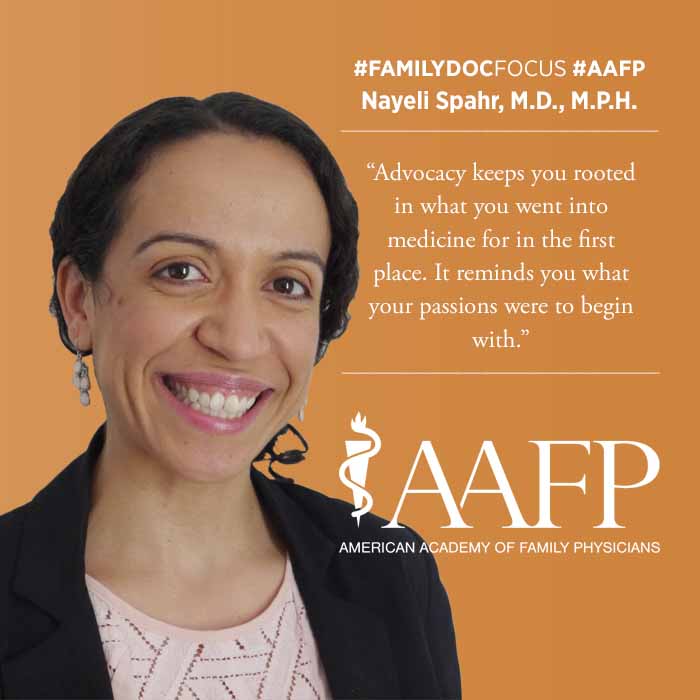Resident's Initiatives Tackle Health Disparities
March 04, 2019 09:26 am David Mitchell – Nayeli Spahr, M.D., M.P.H., was only 3 years old when she came to the United States from Mexico with her mother, who had to work hard to support herself and her daughter in their adopted country.
"Everything I'm focused on is about health equity and health disparities," said Spahr, a third-year resident at the University of Pennsylvania Family Medicine Residency in Philadelphia. "That's directly related to my upbringing and the experiences I've had as a young adult. I grew up with a mom who worked two full-time jobs. She only slept four hours a night. People shouldn't have to do that, but she made a lot of sacrifices for my education."
Spahr's mother pursued her own education, too. After initially working at low-paying jobs at places like Walmart, she became a surgical technician and later a nurse.
"You don't know what potential people might have," Spahr said, "but you can help them build on their strengths."
Her mother's career path exposed Spahr to the medical professions.
"Any time I didn't have an after-school activity, I was at the hospital waiting for her," Spahr said. "I had a lot of contact with her co-workers, and I was always interested in health care."
While pursuing a master's degree in public health from the University of Wisconsin School of Medicine and Public Health, Spahr developed a program at a community health center in Milwaukee that provides group well-child visits for Spanish-speaking immigrant families.

"It's our responsibility to take care of each other, and we have to work together," she said. "They say, 'It takes a village.' Well, we are the villagers."
In Philadelphia, Spahr collaborated with her fellow residents and faculty to form a diversity task force and develop an advocacy curriculum for their program.
Increasing minority representation in medicine is important, she said, because research has indicated that underrepresented minorities are more likely to practice in minority communities, and patients are more satisfied with their care when it is provided by a physician of the same race and background.
The diversity task force will be looking closely at the results of the National Resident Matching Program Main Residency Match when they are announced March 15. This year's incoming class will be the residency program's first since the task force was established.
"We already had a recruiting committee, but we asked ourselves if we could be more intentional about the work we're doing," Spahr said. "It's important. Studies have shown this matters."
The advocacy curriculum, which launched last year, incorporates didactics, health equity discussions and self-guided activities that will teach residents skills such as how to write opinion articles and how to address public health issues such as maternal and infant mortality in their communities.
"Residency is so heavily focused on clinical training that advocacy is an afterthought in some cases," Spahr said. "Once you're done, if you don't have that training, you're less likely to do it. More residencies are trying to integrate that education in residency."
That's important, Spahr said, because advocacy work can help prevent burnout.
"Advocacy keeps you rooted in what you went into medicine for in the first place," she said. "It reminds you what your passions were to begin with."
Spahr's work earned her an AAFP Excellence in Graduate Medical Education (GME) Award last fall during the Family Medicine Experience (FMX). The deadline to apply for the 2019 GME awards is April 5. Twelve family medicine residents will each receive $1,000 scholarships, as well as transportation and lodging for two nights to receive the honor in person during the 2019 AAFP FMX, Sept. 24-28 in Philadelphia.